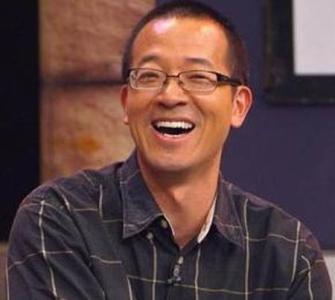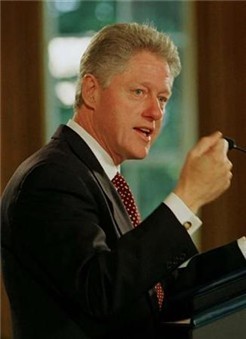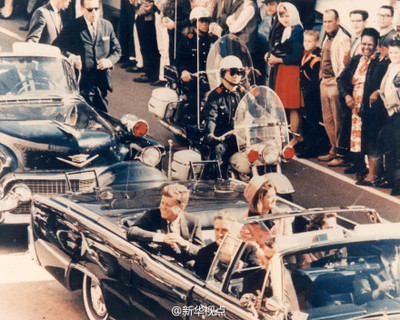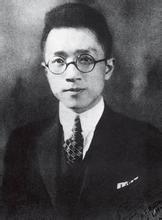(英文原稿转载自白宫官网)Thank you. Well, ni-hao.(Laughter.) It is such apleasure and an honor to be here with all of you at this greatuniversity, so thank you so much for having me.
Now, before I get started today, on behalf of myself and myhusband, I just want to say a few very brief words about MalaysiaAirlines Flight 370. As my husband has said, theUnited States is offering as many resources as possible to assistin the search. And please know that we arekeeping all of the families and loved ones of those on this flightin our thoughts and prayers at this very difficult time.
Now with that, I want to start by recognizing our newAmbassador to China, Ambassador Baucus; President Wang; ChairmanZhu; Vice President Li; Director Cueller; Professor Oi, and theStanford Center; President Sexton from New York University, whichis an excellent study abroad program in Shanghai; and JohnThornton, Director of the Global Leadership Program at TsinghuaUniversity. Thank you all for joining us.
But most of all, I want to thank all of the students who arehere today. And I particularly want to thank EricSchaefer and Zhu Xuanhao for that extraordinary English and Chineseintroduction. That was a powerful symbol ofeverything that I want to talk with you about today.
See, by learning each other’s languages, and by showing suchcuriosity and respect for each other’s cultures, Mr. Schafer andMs. Zhu and all of you are building bridges of understanding thatwill lead to so much more. And I’m here todaybecause I know that our future depends on connections like theseamong young people like you across the globe.
That’s why when my husband and I travel abroad, we don’t justvisit palaces and parliaments and meet with heads of state.We also come to schools like this one to meetwith students like you, because we believe that relationshipsbetween nations aren’t just about relationships between governmentsor leaders -- they’re about relationships between people,particularly young people. So we view studyabroad programs not just as an educational opportunity forstudents, but also as a vital part of America’s foreignpolicy.
Through the wonders of modern technology, our world is moreconnected than ever before. Ideas can crossoceans with the click of a button. Companies cando business and compete with companies across the globe.And we can text, email, Skype with people onevery continent.
So studying abroad isn’t just a fun way to spend a semester;it is quickly becoming the key to success in our global economy.Because getting ahead in today’s workplaces isn’tjust about getting good grades or test scores in school, which areimportant. It’s also about having real experiencewith the world beyond your borders –- experience with languages,cultures and societies very different from your own.Or, as the Chinese saying goes:“It is better to travel ten thousand miles thanto read ten thousand books.”
But let’s be clear, studying abroad is about so much more thanimproving your own future. It’s also aboutshaping the future of your countries and of the world we all share.Because when it comes to the defining challengesof our time -– whether it’s climate change or economic opportunityor the spread of nuclear weapons -- these are shared challenges.And no one country can confront them alone.The only way forward is together.
That’s why it is so important for young people like you tolive and study in each other’s countries, because that’s how youdevelop that habit of cooperation. You do it byimmersing yourself in one another’s culture, by learning eachother’s stories, by getting past the stereotypes and misconceptionsthat too often divide us.
That’s how you come to understand how much we all share.That’s how you realize that we all have a stakein each other’s success -- that cures discovered here in Beijingcould save lives in America, that clean energy technologies fromSilicon Valley in California could improve the environment here inChina, that the architecture of an ancient temple in Xi’an couldinspire the design of new buildings in Dallas or Detroit.
And that’s when the connections you make as classmates orlabmates can blossom into something more. That’swhat happened when Abigail Coplin became an American FulbrightScholar here at Peking University. She and hercolleagues published papers together in top science journals, andthey built research partnerships that lasted long after theyreturned to their home countries. And ProfessorNiu Ke from Peking University was a Fulbright Scholarship --Scholar in the U.S. last year, and he reported -- and this is aquote from him -- he said, “The most memorable experiences werewith my American friends.”
These lasting bonds represent the true value of studyingabroad. And I am thrilled that more and morestudents are getting this opportunity. As you’veheard, China is currently the fifth most popular destination forAmericans studying abroad, and today, the highest number ofexchange students in the U.S. are from China.
But still, too many students never have this chance, and somethat do are hesitant to take it. They may feellike studying abroad is only for wealthy students or students fromcertain kinds of universities. Or they may thinkto themselves, well, that sounds fun but how will it be useful inmy life? And believe me, I understand where theseyoung people are coming from because I felt the same way back whenI was in college.
See, I came from a working-class family, and it never occurredto me to study abroad -- never. My parents didn’tget a chance to attend college, so I was focused on getting into auniversity, earning my degree so that I could get a good job tosupport myself and help my family. And I know fora lot of young people like me who are struggling to afford aregular semester of school, paying for plane tickets or livingexpenses halfway around the world just isn’t possible.And that’s not acceptable, because study abroadshouldn’t just be for students from certainbackgrounds.
Our hope is to build connections between people of all racesand socioeconomic backgrounds, because it is that diversity thattruly will change the face of our relationships.So we believe that diversity makes our countryvibrant and strong. And our study abroad programsshould reflect the true spirit of America to theworld.
And that’s why when my husband visited China back in 2009, heannounced the 100,000 Strong initiative to increase the number anddiversity of American students studying in China.And this year, as we mark the 35th anniversary ofthe normalization of relationships between our two countries, theU.S. government actually supports more American students in Chinathan in any other country in the world.
We are sending high school, college and graduate students hereto study Chinese. We’re inviting teachers fromChina to teach Mandarin in American schools.We’re providing free online advising for studentsin China who want to study in the U.S. And theU.S.-China Fulbright program is still going strong with more than3,000 alumni.
And the private sector is stepping up as well.For example, Steve Schwarzman, who is the head ofan American company called Blackstone, is funding a new program atTsinghua University modeled on the Rhodes Scholarship.And today, students from all kinds of backgroundsare studying here in China.
Take the example of Royale Nicholson, who’s from Cleveland,Ohio. She attends New York University’s programin Shanghai. Now, like me, Royale is afirst-generation college student. And her motherworked two full-time jobs while her father worked nights to supporttheir family. And of her experience in Shanghai,Royale said -- and this is her quote -- she said, “This city oozespersistence and inspires me to accomplish all that I can.”And happy birthday, Royale. Itwas her birthday yesterday.(Laughter.)
And then there’s Philmon Haile from the University ofWashington, whose family came to the U.S. as refugees from Eritreawhen he was a child. And of his experiencestudying in China, he said, “Study abroad is a powerful vehicle forpeople-to-people exchange as we move into a new era of citizendiplomacy.”
“A new era of citizen diplomacy.” I couldnot have said it better myself, because that’s really what I’mtalking about. I am talking about ordinarycitizens reaching out to the world. And as Ialways tell young people back in America, you don’t need to get ona plane to be a citizen diplomat. I tell themthat if you have an Internet connection in your home, school, orlibrary, within seconds you can be transported anywhere in theworld and meet people on every continent.
And that’s why I’m posting a daily travel blog with videos andphotos of my experiences here in China, because I want young peoplein America to be part of this visit. And that’sreally the power of technology –- how it can open up the entireworld and expose us to ideas and innovations we never could haveimagined.
And that’s why it’s so important for information and ideas toflow freely over the Internet and through the media, because that’show we discover the truth. That’s how we learnwhat’s really happening in our communities and our country and ourworld. And that’s how we decide which values andideas we think are best –- by questioning and debating themvigorously, by listening to all sides of an argument, and byjudging for ourselves.
And believe me, I know how this can be a messy and frustratingprocess. My husband and I are on the receivingend of plenty of questioning and criticism from our media and ourfellow citizens. And it’s not always easy, but wewouldn’t trade it for anything in the world.Because time and again, we have seen thatcountries are stronger and more prosperous when the voices of andopinions of all their citizens can beheard.
And as my husband has said, we respect the uniqueness of othercultures and societies, but when it comes to expressing yourselffreely and worshipping as you choose and having open access toinformation, we believe those universal rights -- they areuniversal rights that are the birthright of every person on thisplanet. We believe that all people deserve theopportunity to fulfill their highest potential as I was able to doin the United States.
And as you learn about new cultures and form new friendshipsduring your time here in China and in the United States, all of youare the living, breathing embodiment of those values.So I guarantee you that in studying abroad,you’re not just changing your own life, you are changing the livesof everyone you meet.
And as the great American President John F. Kennedy once saidabout foreign students studying in the U.S., he said “I think theyteach more than they learn.” And that is just astrue of young Americans who study abroad. All ofyou are America’s best face, and China’s best face, to the world --you truly are.
Every day, you show the world your countries’ energy andcreativity and optimism and unwavering belief in the future.And every day, you remind us -- and me inparticular -- of just how much we can achieve if we reach acrossborders, and learn to see ourselves in each other, and confront ourshared challenges with shared resolve.
So I hope you all will keep seeking these kinds ofexperiences. And I hope you’ll keep teaching eachother, and learning from each other, and building bonds offriendship that will enrich your lives and enrich our world fordecades to come.
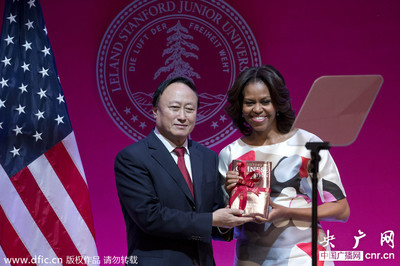
You all have so much to offer, and I cannot wait to see allthat you achieve together in the years ahead.
Thank you so much. Xie-Xie.
想参加美国插班式学习夏令营?请看:2014年艺艺特式学术型夏校********************************************************************************************我的微信:yiyi123hao亚美机构的微信:aacea99我的电邮:springplant@gmail.com QQ:324008075我的微博:快乐的艺艺http://www.weibo.com/b20081120我的博客:快乐的艺艺http://blog.sina.com.cn/b20081120我的QQ本科群:177104223我的QQ申高群:177095434
 爱华网
爱华网